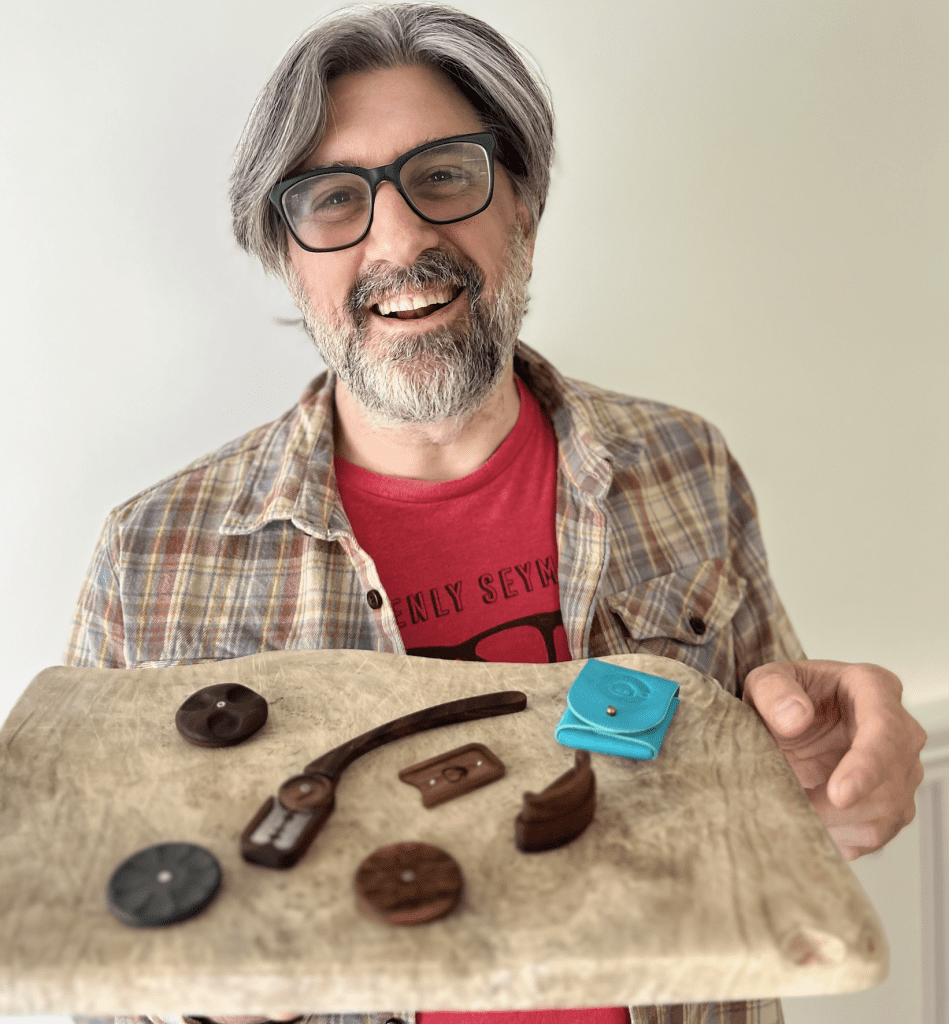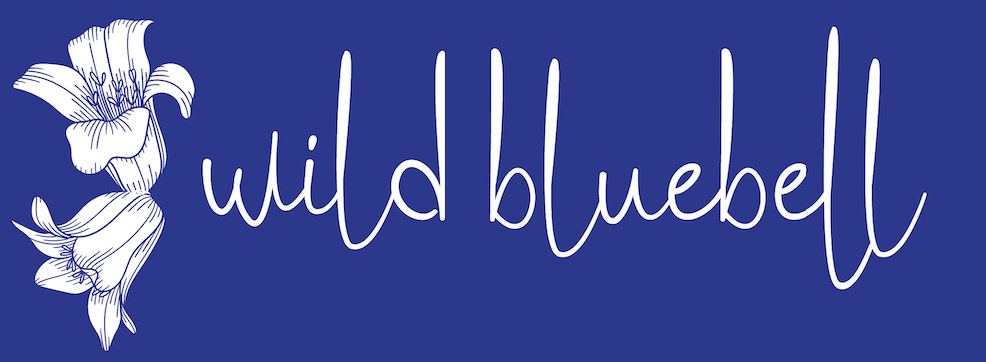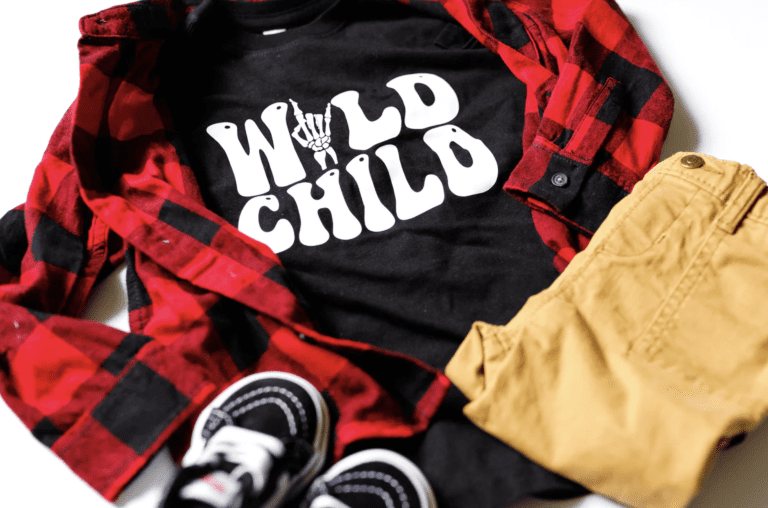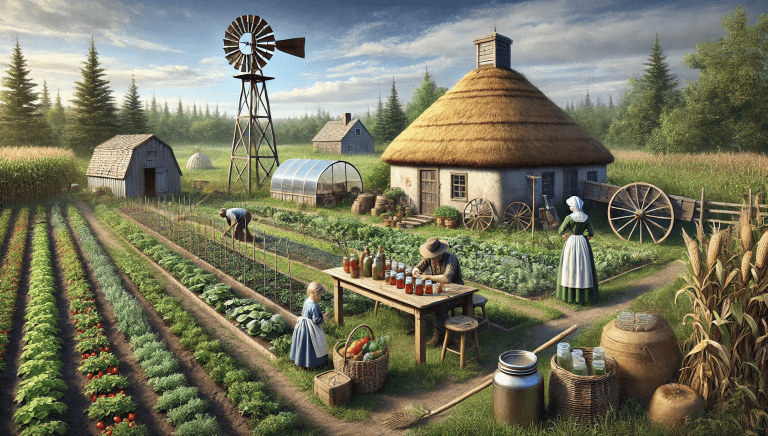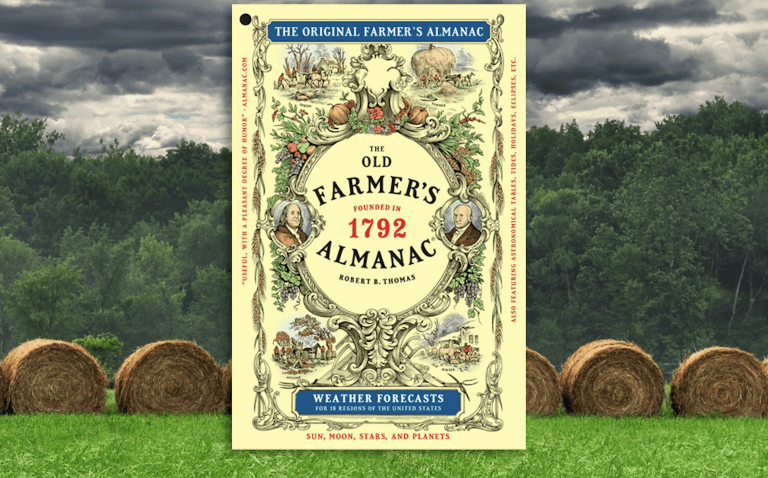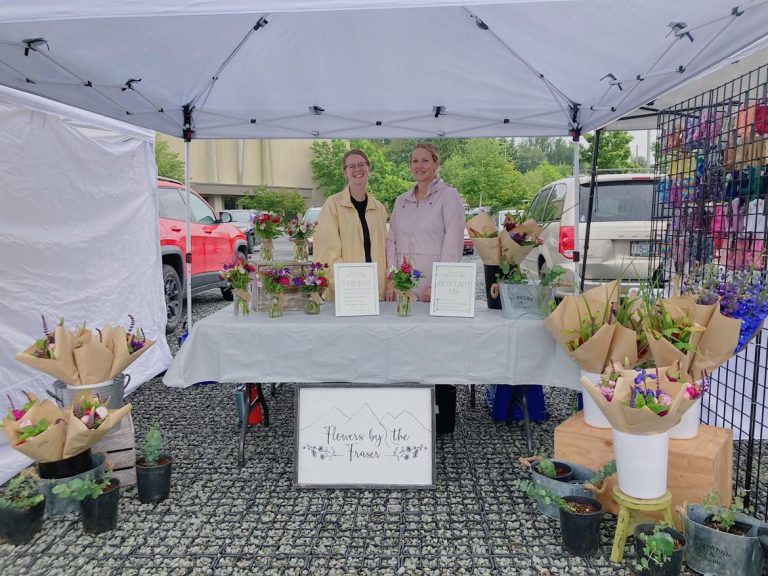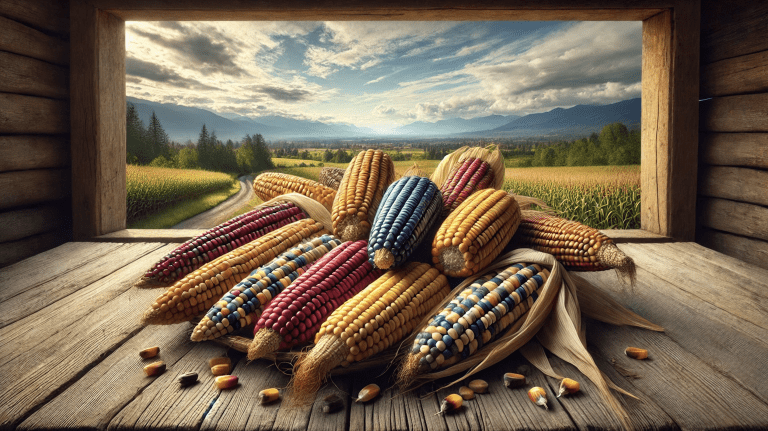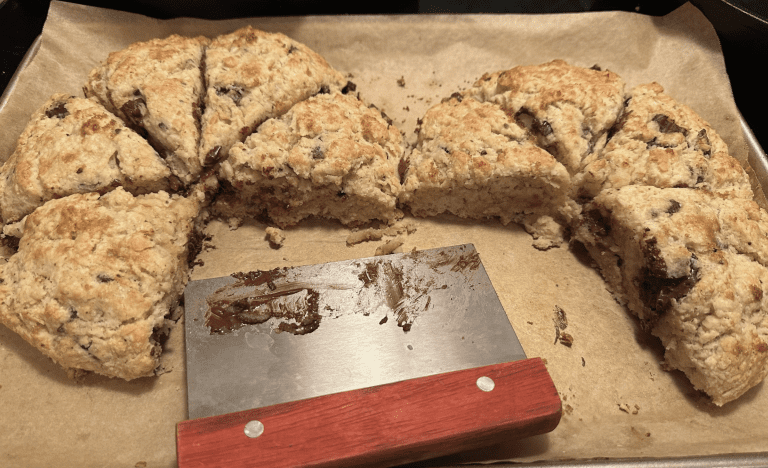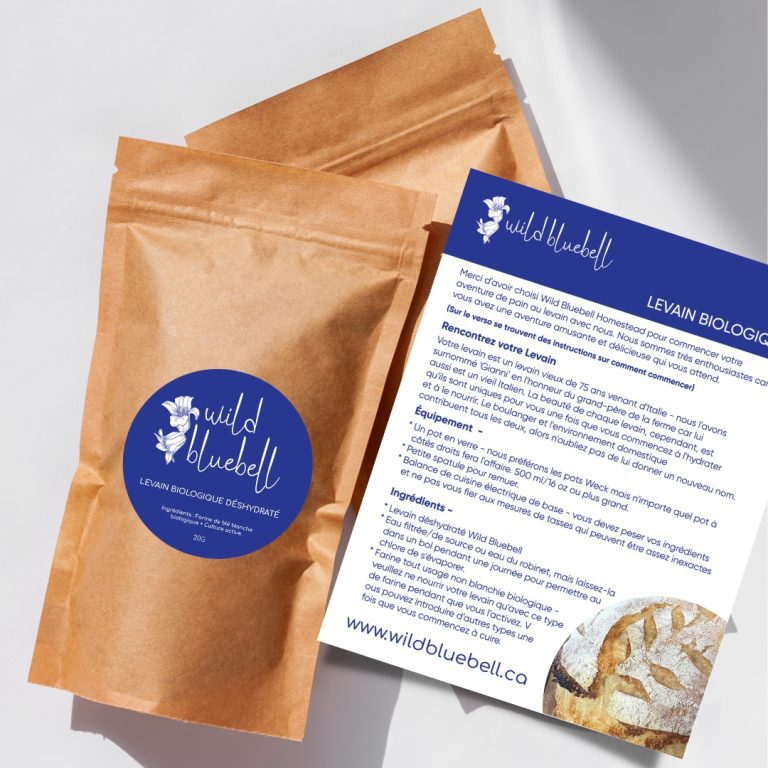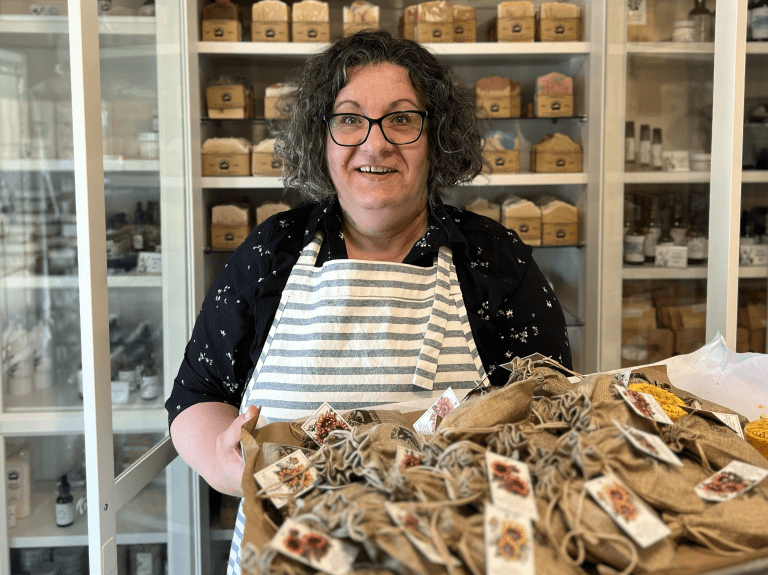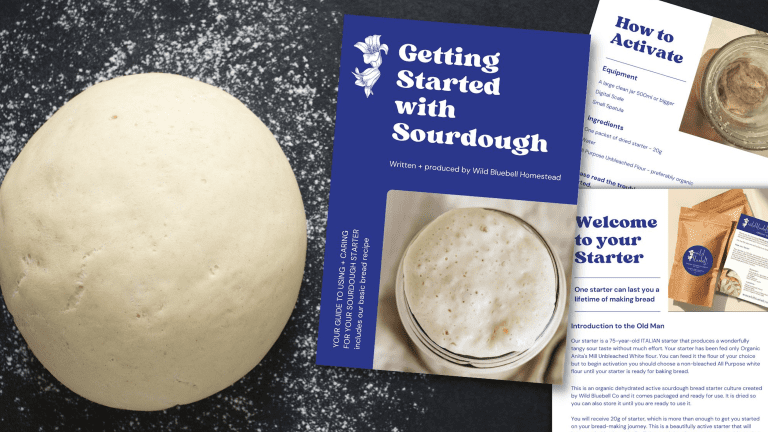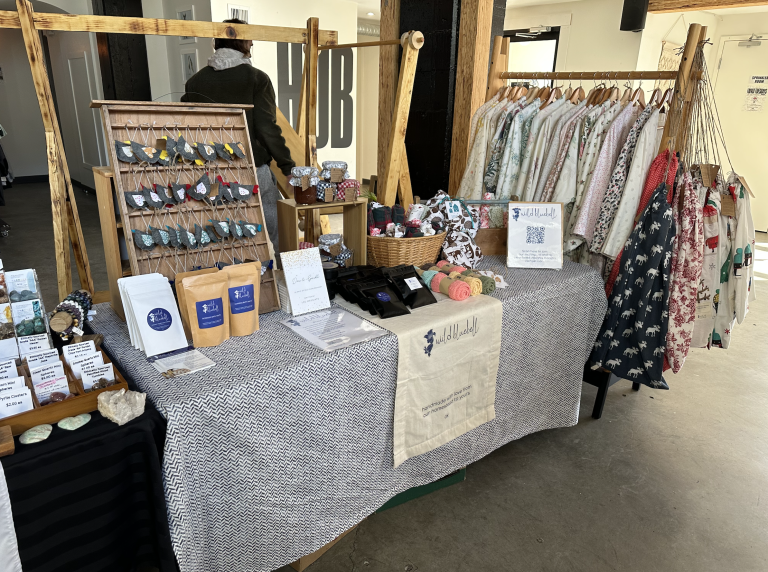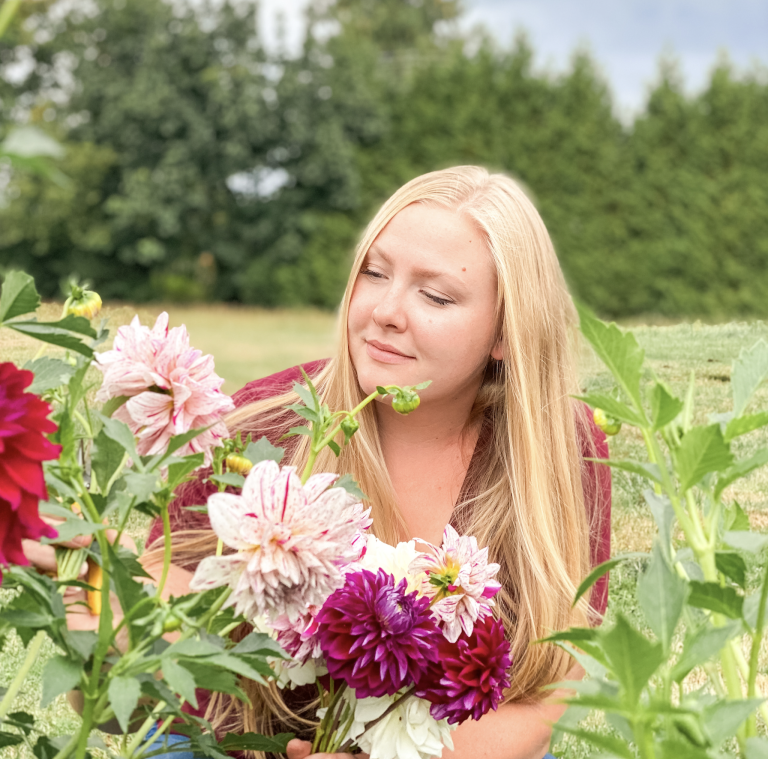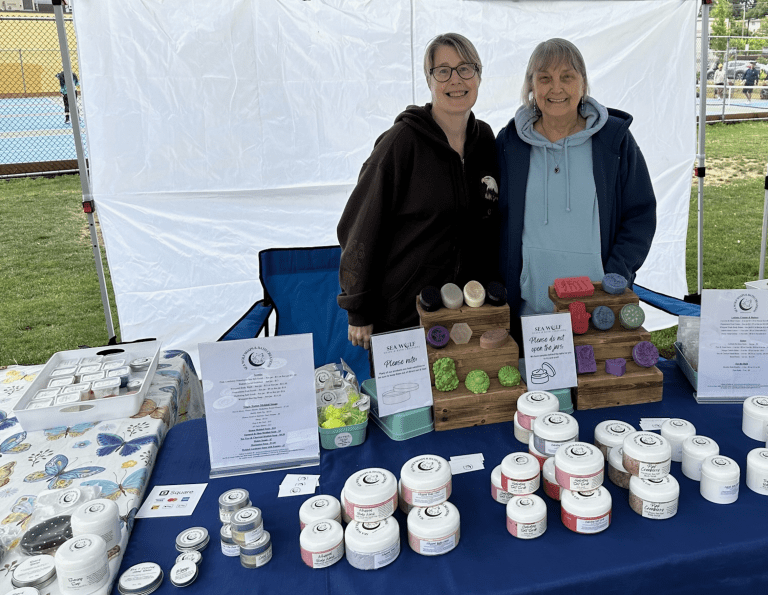In our recent homestead blog post, we get to chat with Tyler Cartner from WireMonkey, they make artisanal sourdough-scoring lames.
Can you provide us with some background on Wire Monkey? How did the company come into existence, and what inspired you to specialize in creating handmade, artisanal sourdough bread lames?
My wife started baking sourdough bread in the summer of 2018. This coincided with me finishing a custom CNC (computer numeric control) machine, aka a computer-controlled router. I was anxious to make something with my shiny new machine and when I saw her using a razor blade on a coffee stirrer I decided to try my hand at making a lame. At the time, I had never heard the word “lame” before and didn’t know something existed. So, I started in on a design without having seen other lames, so the traditional design didn’t influence me. Before I knew that most lames used a double-edged safety razor, I designed one that looked like an abstract sperm whale, the Moby, but it was made for a single-edged razor, which is thicker and typically used for cutting carpets. I made a handful of those, but the manufacturing process was too intensive as it was a 3D sculptured object. I think I made and sold about 50 of those before realizing it was an untenable manufacturing process. Then I came up with the circular design, UFO, which really launched the business. I threw them up on Etsy and partnered up with Anna Gabur (@breadjourney on Instagram), who designed the artwork engraved into our most popular UFO model, the UFO Bread Journey. Then it was off to the races!
How would you characterize the Wire Monkey brand? What differentiates your handmade bread lames from other products in the market, and how do you ensure that your artisanal lames meet the highest standards of quality and craftsmanship?
Here are a few things that set Wire Monkey apart from our competitors:
- We don’t use plastics or chemicals in our products or packaging.
- We pay living wages to our employees.
- We manufacture and sell the lames ourselves here in the USA.
- We are committed to creating unique, beautiful and practical designs, no knobs sticking out, etc. And we always break new ground with each new model, having invented three of the smallest lames in the world and now the Goose, our first handled lame, which can be used like a paint brush or a more traditional slasher.
- We give back to the baking community and to good causes: A portion of the sales from many of our products goes to: the Real Bread Campaign, Sourdough Podcast, Ukraine refugee relief and we have raised over $10,000 over the last four years to help bakers in need, whether they suffered a fire or flood or needed help to get a bakery off the ground. We also promote good causes on our social media platforms.
- We use only upcycled leather for our pouches.
- Our fractionated coconut oil is ethically sourced.
Can you walk us through the various stages of the production process for your sourdough bread lames, from selecting the right woods to the finishing touches that make each product unique? How long does it take to produce a single lame, and what are some of the biggest challenges you face when crafting these pieces by hand?
We purchase our American Black Walnut wood from a mill in the USA. They dry, cut and pre-sand it for us. I don’t like to talk about the manufacturing process too much because there are so many companies, mostly out of China, making knockoffs of our UFOs. They make an inferior, chemically treated product that doesn’t have the elegance and curves of ours and I don’t want them to know any secrets. Let’s just says that our shop is very small. I’m currently the only full-time employee and I have several part-timers who come and go. When we get a large custom order, I’ll get all hands on deck to make it happen.
Could you tell us more about the types of wood you use in your lames, and why you selected these particular materials? How do you ensure that the woods you work with are ethically and sustainably sourced, and what steps do you take to preserve the natural beauty of each piece of wood?
I’ve always loved the look of black walnut more than any other wood. It’s dark and dense and easy to work with, and it smells lovely when sanded, cut or hot branded. Regardless of how our wood is sourced, I’d say we’ve used a total of two black walnut trees worth of wood over the last four years making lames. The low volume in and of itself makes us sustainable. We don’t coat the wood with chemicals, instead, we soak them in fractionated coconut oil to condition it, which requires some maintenance by the customer over time, and reapplication of oil once in a while, but we feel this is a worthy trade-off.
Design is obviously a crucial component of your product line. How do you go about creating and refining your bread lame designs, and what are some of the key considerations you keep in mind when developing new products? Do you have any new designs or innovations in the works that you can tell us about?
I keep a sketchbook handy and scribble in it when the muse strikes. I have so many lame designs, but really how many lames does the world need? I only want to make things that don’t exist or that I can drastically improve upon. I give myself limitations when designing: make something unique (no small task), practical, no protruding knobs, beautiful, easy to use. I’m in the process of designing another lame with someone, a star in the world of sourdough, not to be named yet, and it will be a curved handle lame. It will be unique in regards to the material and how the blade is mounted. Stay tuned!
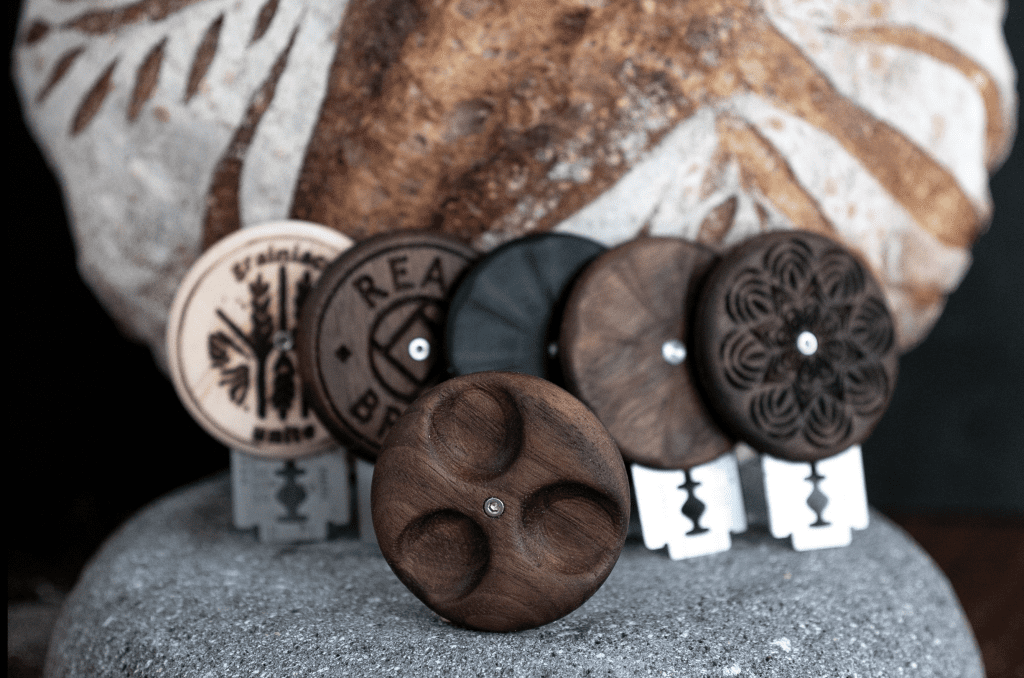
As a small business, Wire Monkey faces unique challenges and opportunities. How do you approach marketing and selling your products, and what strategies have been most effective for you thus far? Are there any particular distribution channels or marketplaces that you have found to be especially valuable?
So far, Instagram has been our main platform. We’re lucky that customers like to show off our products next to their gorgeous creations. For some reason, many people get excited about gaining followers, whether or not they want to become an influencer. I repost my customers’ work and that helps them get their bread seen, so it’s a wonderful symbiotic relationship. I’ve tried branching out to other social media platforms, but none have been anywhere near as effective as Instagram. It’s mostly me doing everything, including Instagram marketing, so I don’t have much time to put into marketing. Maybe one of your readers is an amazing marketer and wants to do some work for me in exchange for some lames? Ha!
Sometimes you get little breaks and you think it will increase your sales, but then it doesn’t. For example, our lames were featured on The Great British Bakeoff, but the show didn’t provide any kind of product link so, probably most people just went on Amazon and bought a knockoff. You never know what will help or hinder your business.
Customer satisfaction is obviously a key priority for any business. How do you ensure that your customers are satisfied with their purchases, and what steps do you take to address any concerns or issues that arise? What kind of feedback have you received from customers, and how have you incorporated this feedback into your business strategy?
Since I handle all customer interactions these days, it’s most important to me to make sure people are satisfied. I grew up with the idea that the customer is always right. On the rare occasion that someone doesn’t like one of our lames, which rarely occurs (wink), I take it back and refund, no questions asked. If they are willing to try some of my suggestions, I offer up some videos or have them look at some of the thousands of customer reels on Instagram. Some customers have also prompted product designs. For example, the UFO Nux (Nut in Latin), is twice the thickness of the other UFO models and has deep grooves for an easy grip. The Nux was created because a customer who had a hand disability contacted me and said that she liked the UFO, but that with her hand condition, it was difficult to manipulate. I set to work to create something easier to handle. I also watch scoring on Instagram and elsewhere, for hours every day so I have a finger on the dough of what kind of scoring people are into and this knowledge certainly informs my designs.
Looking ahead, what do you see as the future of artisanal sourdough bread lames, both in terms of industry trends and your own business goals? How do you plan to stay ahead of the curve and continue innovating in this space, and what new products or initiatives can we expect to see from Wire Monkey in the coming years?
One doesn’t need a lame to score. A bakery that’s scoring hundreds of loaves a day, it’s a necessity for safety and I’m sure it helps with fatigue having a more comfortable way to hold a sharp blade. But for the average person, it’s a lovely object to enjoy as part of the sourdough process. I’ve seen some funny ways of doing things over the years. For example, someone attached a scalpel blade to a sonic toothbrush and it worked really well because the blade can’t stick to the dough when it’s shaking back and forth a thousand times a second. I loved that, but I won’t try to do anything like that because there is plastic involved. I may come up with a more comfortable way to hold a scalpel blade since some folks prefer them. I’m most intrigued by aesthetics and innovating on ways to mount a standard safety razor blade. I’m not done yet and am starting to explore 5-axis CNC to achieve the designs I want to do next, which are more complex and sculpted.
What’s next? Hmmm. I try not to think about it. I’m making a decent living and am my own boss. I don’t need to rule the world. Things come in their own time and when the next design is ready to jump off the sketchbook page, it will happen all by itself. To get a little philosophical here, I used to set goals for myself and then start stressing out to try and meet those goals. One day I had an epiphany, I stopped myself and realized that I had created my own deadline and therefore my own stress! It seems like common sense, but it never occurred to me when I was in the thick of meeting a deadline. Ha! I also realize that I’m not creating products that mean life or death for anyone so, what’s to stress about? This is a constant struggle, but I’m much better at this now.
Finally, we’d love to know more about the people behind Wire Monkey. Who are the key members of your team, and what kind of experience and
expertise do they bring to the table? What motivates you personally to pursue this kind of work, and what inspires you to keep pushing the boundaries of what’s possible in the world of handmade bread lames?
I hire folks with good work ethics and who are kind. It’s pretty much that simple. I like people who work just as hard when they are not being watched. I’ve had good luck finding very talented people to help me along the way. At its pinnacle, Wire Monkey had only four full-time employees, including myself. Now it’s down to just me and a handful of part-time dependable people that I call in when it gets busy. We were one of the lucky companies that had a tremendous growth period when covid hit back in early 2020. After 6 months or so, we went from not being able to keep up with orders to a much lower baseline. It was far more difficult to downsize because employees’ livelihoods were at stake. Luckily everyone came out relatively whole. I’ve always been someone who likes to make things. For a while, I was making and selling vacuum tube pre-amplifiers for audiophiles. I had a band for many years, so the need to create has always been important to me. As long as Wire Monkey maintains creativity at its core, I’ll be around making beautiful and practical objects for people to enjoy.
Stay tuned for a spin off company where I design and make other non-kitchenware objects, but at my own pace. In other words, I’ll make things in batches vs keeping a stock. They will go up for sale and when they’re sold out they may be gone forever. I like the idea of that. My other non-lame sketchbook has been dormant for too long.
For more info follow them on Instagram, Facebook and visit their website
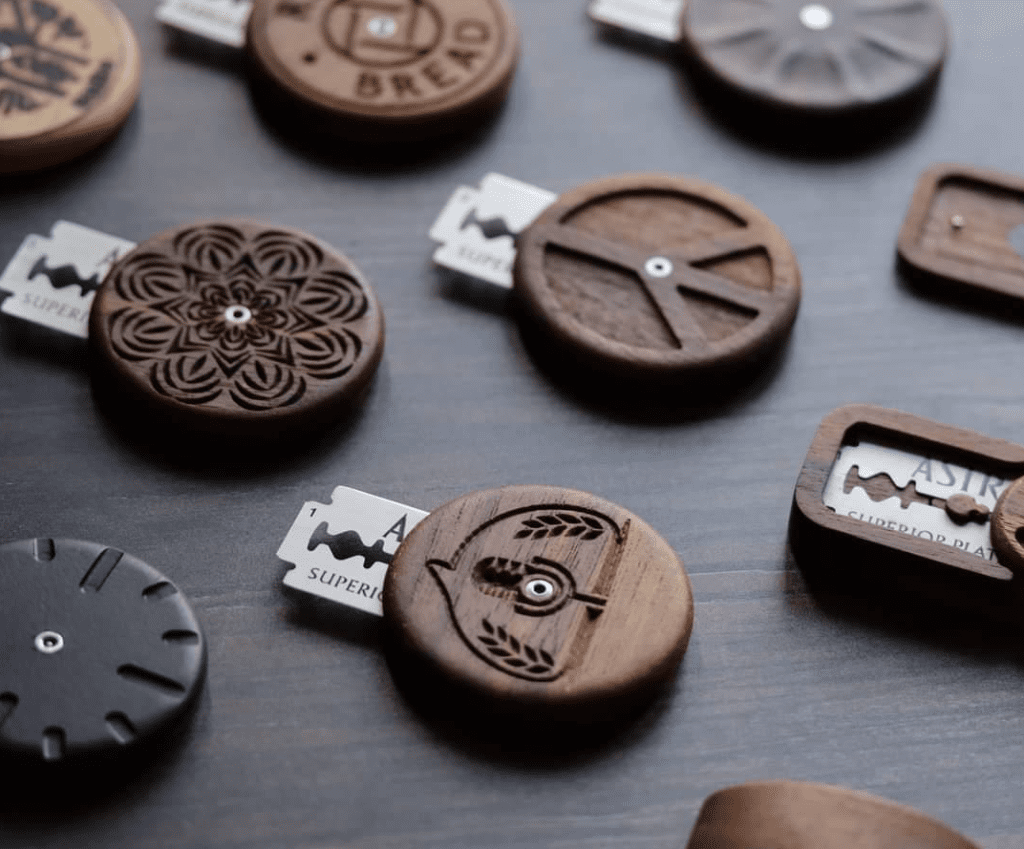
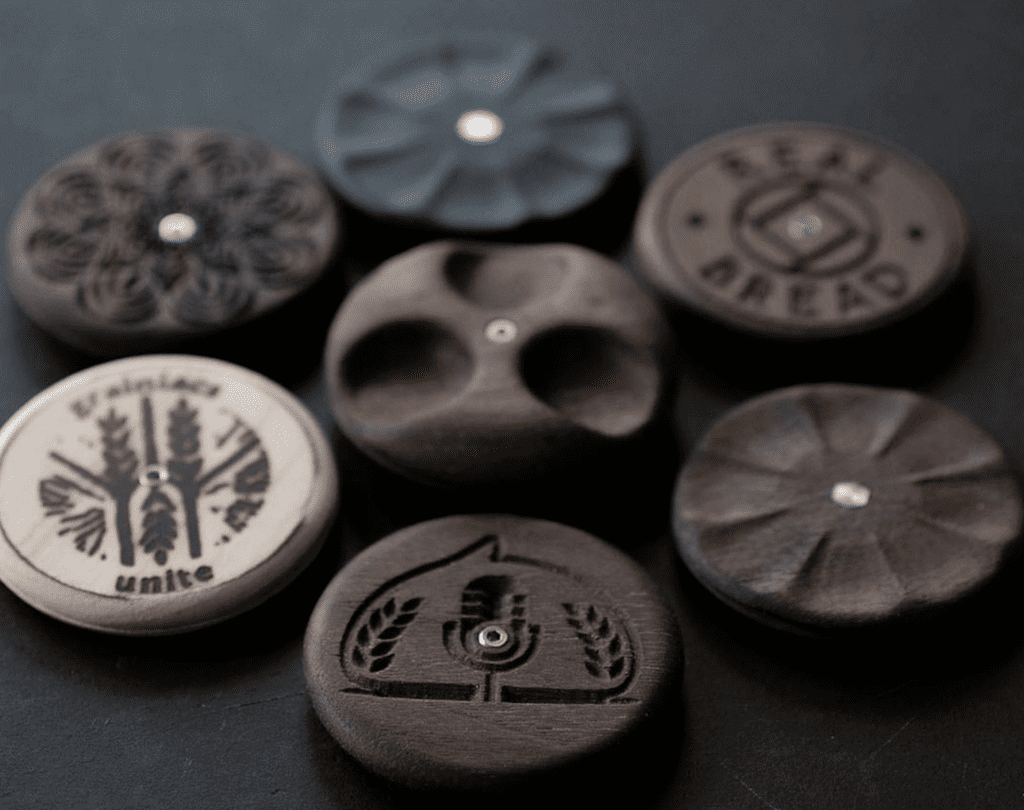
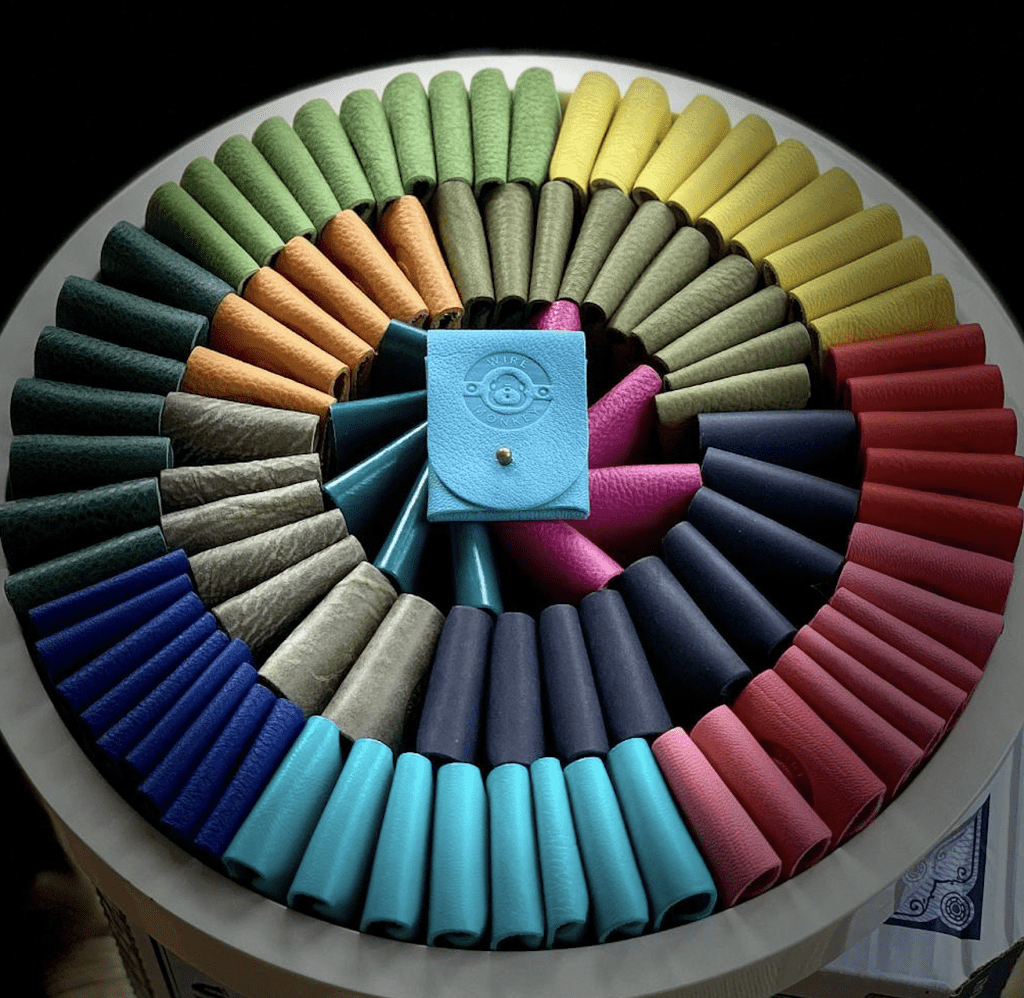

Wild Bluebell Homestead is a charming hobby farm located in Abbotsford that offers a range of hand-made artisanal products, curated vintage furniture, sourdough bread, and other homemade items. The homestead is dedicated to creating unique and high-quality products that are beautiful, functional, and long-lasting, plus each item is carefully crafted with attention to detail. Customers can expect a warm and welcoming experience and a range of products that are perfect for adding a touch of rustic charm to any home.

